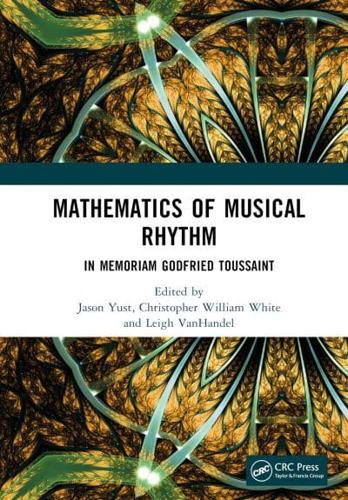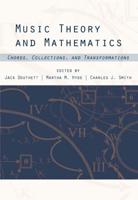Publisher's Synopsis
This book presents original research applying mathematics to musical rhythm, with a focus on computational methods, theoretical approaches, analysis of rhythm in folk and global music traditions, syncopation, and maximal evenness. It honours the legacy of computer scientist and music theorist Godfried Toussaint.
In addition to addressing a topic pioneered by Toussaint, application of mathematics to representation of musical rhythms, the volume also builds upon his interest in analysis of music traditions outside the European classical canon and the use of computational methods. Empirical contributions include a study of timing in Scandinavian polska performance showing that timing interacts with rhythmic features and a study of vocal melody rhythm in pre- and post-millennial popular music, showing significant differences in tempo, rhythmic density, and repetition in the two corpora. Theoretical contributions include a survey of timeline rhythms of African and African diasporic musics showing the prevalence of rhythms of a special type related to maximal evenness, an application of matrix algebra to rhythm and syncopation with analysis of clave rhythms, a ragtime corpus, and Balinese gong cycles, and a mathematical development of a new classification of smooth rhythms using a "shadow rhythm" algorithm suggested by Toussaint. The volume also includes an original composition by Tom Johnson and a personal recollection of Toussaint by Francisco Gómez-Martìn.
This volume will be a key resource for academics, researchers, and advanced students of music, musicology, music analyses, mathematical music theory, computational musicology, and music informatics. It was originally published as a special issue of the Journal of Mathematics and Music.












